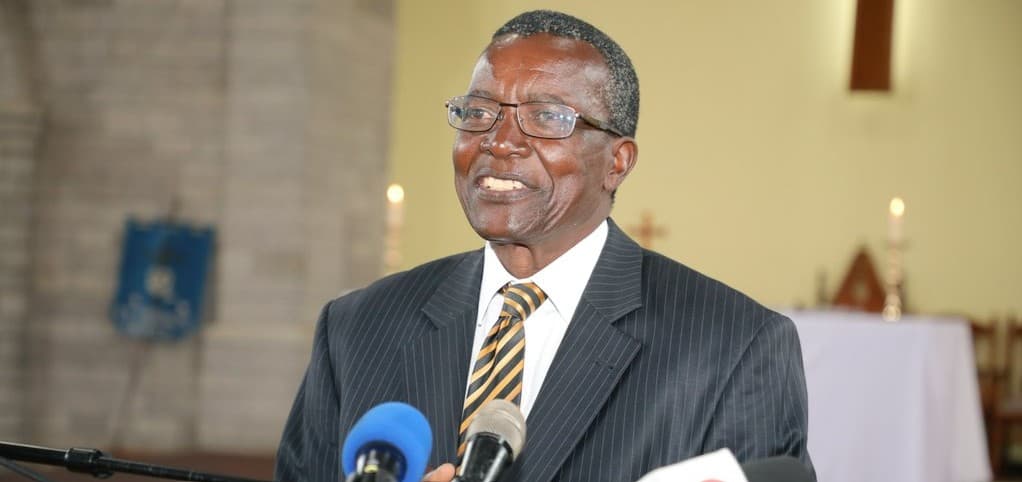We're loading the full news article for you. This includes the article content, images, author information, and related articles.
Former Chief Justice David Maraga has raised concerns over the recently passed Privatisation Bill 2025, calling for full transparency and public oversight in the conversion of state-owned enterprises to private companies.

Former Chief Justice David Maraga, a declared presidential aspirant for 2027, has strongly criticised the Privatisation Bill 2025, which was passed by the National Assembly on Wednesday, October 9, 2025, and now awaits presidential assent. In a statement issued on Monday, October 13, 2025, Maraga termed the Bill a "sinister economic cold war against your own country," arguing that it bypasses constitutional requirements for public participation. He warned that the legislation risks concentrating wealth in the hands of a few powerful individuals while undermining the public interest.
Maraga has outlined several non-negotiable demands, including the publication of complete lists of all entities targeted for conversion or sale, independent valuations, debt profiles, and workforce impact assessments. He also called for open public hearings in affected regions, with written records and published responses to submissions. Furthermore, Maraga insisted on clear conflict-of-interest rules, full disclosure of beneficial owners for any bidder or adviser, and a competitive privatisation process with open tendering and audited information packs.
The Privatisation Bill 2025 aims to repeal and replace the Privatisation Act of 2005, establishing a new legal framework for the sale, restructuring, and management of state corporations. The government's objective is to enhance efficiency in public entities, generate revenue, and reduce reliance on the exchequer. This initiative is part of a broader economic reform agenda to attract private capital, deepen domestic financial markets, and lessen dependence on foreign debt.
President William Ruto's administration has expressed intentions to privatise 35 state corporations, with plans for over 100 more. Among the entities previously identified for privatisation are the Kenya Pipeline Company (KPC), Kenyatta International Convention Centre (KICC), New Kenya Cooperative Creameries (NKCC), Kenya Seed Company Limited, National Oil Corporation of Kenya (NOCK), and Kenya Literature Bureau (KLB).
The Privatisation Bill 2025 introduces a structured approach to privatisation, covering oversight, coordination, programme implementation, and management of proceeds. It establishes a Privatisation Authority to oversee the entire process. The Bill mandates that the Cabinet Secretary to the National Treasury formulate the privatisation programme, which must then be approved by the Cabinet and the National Assembly.
The new legislation requires public consultations during the formulation of the privatisation programme, with the National Assembly playing a key role in ratification. However, the High Court of Kenya declared the Privatisation Act 2023 unconstitutional on September 24, 2024, citing a lack of adequate public participation. This ruling highlighted the constitutional requirement for public involvement in decisions affecting the public.
Former Chief Justice Maraga's strong stance reflects a segment of public concern regarding the transparency and fairness of the privatisation process. Critics argue that the process could disproportionately benefit elites, with ordinary citizens seeing little return. Proponents, including the National Assembly Majority Leader Kimani Ichung'wah, defend the government's agenda, highlighting the potential for economic gains and reduced fiscal strain. For instance, the proposed sale of a 65 percent stake in KPC is projected to raise KSh 100 billion, which could be channelled into critical sectors like infrastructure and healthcare.
The central risk highlighted by Maraga and other critics is the potential for the privatisation process to lack transparency and accountability, leading to the concentration of national assets and wealth in the hands of a few. Without robust public participation and oversight, there are concerns that strategic public assets may be undervalued or sold under opaque circumstances, ultimately undermining public interest.
The government, however, views privatisation as a crucial step towards improving the efficiency of state-owned enterprises, reducing their drain on public finances, and attracting much-needed investment. The success of this initiative hinges on balancing these economic objectives with the constitutional demands for transparency and public engagement.
Despite the passage of the Bill by the National Assembly, the specific timelines for presidential assent and subsequent implementation remain uncertain. The High Court's previous nullification of the Privatisation Act 2023 on constitutional grounds underscores the legal challenges that could arise if public participation requirements are not demonstrably met. The full list of entities to be privatised under the new Bill, along with their independent valuations and debt profiles, is yet to be publicly disclosed as demanded by Maraga.
All eyes will be on President William Ruto's decision regarding the assent of the Privatisation Bill 2025. Following assent, the focus will shift to the implementation framework, particularly how the newly established Privatisation Authority will ensure public participation, transparency in valuations, and adherence to conflict-of-interest rules. Any legal challenges to the new Act, especially concerning constitutional compliance, will be closely monitored.
The government has set March 31, 2026, as the deadline for the privatisation of the Kenya Pipeline Company (KPC). However, a High Court order issued on August 15, 2025, temporarily halted any sale, transfer, or disposal of KPC shares until a petition challenging the move is fully heard.
Keep the conversation in one place—threads here stay linked to the story and in the forums.
Sign in to start a discussion
Start a conversation about this story and keep it linked here.
Other hot threads
E-sports and Gaming Community in Kenya
Active 9 months ago
The Role of Technology in Modern Agriculture (AgriTech)
Active 9 months ago
Popular Recreational Activities Across Counties
Active 9 months ago
Investing in Youth Sports Development Programs
Active 9 months ago